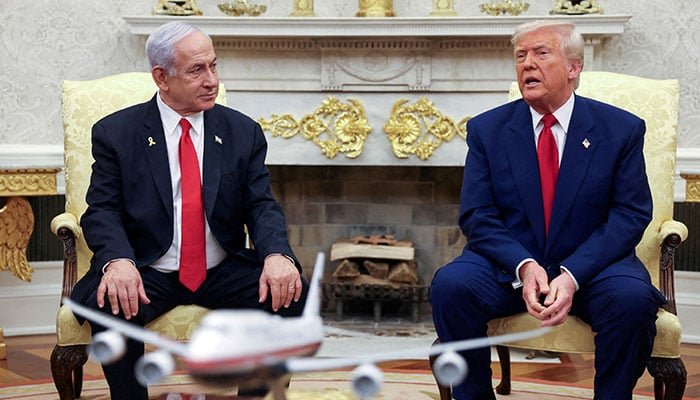U.S. President Donald Trump, a long-time critic of Washington’s foreign policy who pledged to avoid “forever wars,” is now facing a significant test of that promise after Israel’s large-scale strikes on Iran. The situation could create tension with his political base as he decides the level of U.S. support to offer Israel.
Despite publicly urging Israel to pursue a negotiated solution and having his envoy, Steve Witkoff, scheduled for a sixth meeting with Iranian officials, Trump later praised the Israeli strikes as “excellent.” He touted the U.S.’s role in providing Israel with the world’s “best and most lethal military equipment” and warned of further strikes if Iran doesn’t agree to a deal.
Secretary of State Marco Rubio insisted that the U.S. wasn’t involved in the strikes, while warning Iran against retaliating against the thousands of U.S. troops in the region. However, a U.S. official confirmed that the U.S. is assisting Israel in intercepting Iranian missiles fired in response.
Alex Vatanka, from the Middle East Institute, suggests the U.S. is betting that Iran, aware of U.S. assistance to Israel, will ultimately decide the conflict isn’t worth pursuing, at least publicly. The hope is Iran will calculate the costs and benefits, and back down. Vatanka believes Iran’s immediate focus is self-preservation, and they may choose between accepting a tough deal or escalating the conflict by disrupting the Gulf’s oil supply, potentially driving up prices and pressuring Trump.
While many key Republicans have quickly lined up behind Israel and Prime Minister Benjamin Netanyahu, whom they see as a bulwark against an existential threat from Iran, Trump’s “America First” base is more skeptical.
Tucker Carlson, a media commentator who previously advised Trump against military action against Iran, dismisses the threat of Iran developing a nuclear bomb and argues neither Iran nor Ukraine warrant U.S. military involvement. After the Israeli strikes, Carlson noted the division among Trump’s advisors between “warmongers and peacemakers.”
Trump’s administration includes prominent non-interventionists. Director of National Intelligence Tulsi Gabbard recently warned against “warmongers” risking nuclear catastrophe. Trump himself, in a speech in Riyadh last month, denounced decades of U.S. interventionism in the Middle East, stating his desire to be a peacemaker.
Daniel Shapiro, former U.S. ambassador to Israel, believes U.S. support for Israel’s defense against Iranian retaliation was a given. However, Trump now faces a tougher decision: whether to deploy U.S. capabilities to destroy Iran’s underground nuclear facilities. This decision, according to Shapiro, will divide his advisors and political base, fueling accusations that Netanyahu is trying to draw him into war.
Democrats widely criticize Netanyahu, particularly over Israel’s actions in Gaza. Democratic Representative Joaquin Castro called the Israeli strike “pure sabotage,” questioning the meaning of “America First” if Trump allows Netanyahu to drag the U.S. into an unwanted war.
Sina Toossi, from the Center for International Policy, suggests that China could exploit the situation, perhaps by acting against Taiwan, seeing the U.S. as increasingly distracted. The U.S. now faces the prospect of long-term resupply, intelligence support, and diplomatic backing for Israel, as the war in Ukraine intensifies and other global crises mount. Toossi concludes that wars are easily started but often spiral out of control, rarely ending on the terms desired by the initiators.


